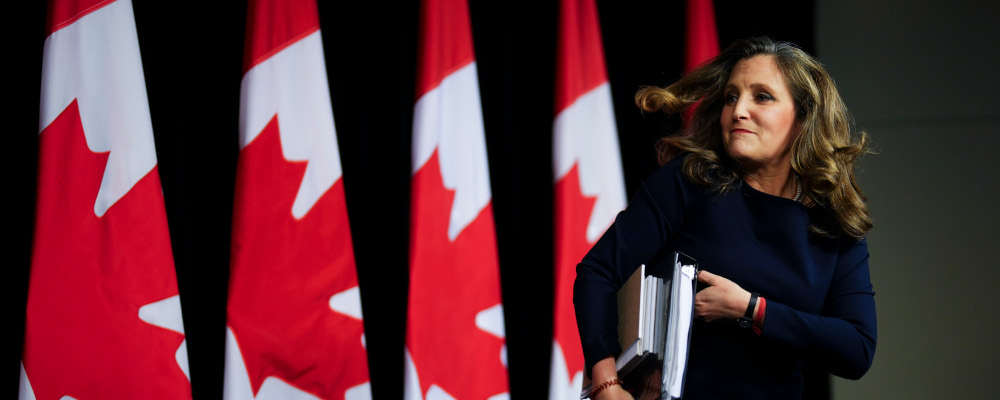“The difference between practice and theory is that in theory there is no difference but in practice there is.”
This line, attributed (possibly apocryphally) to Yogi Berra, seems to describe the Canadian taxation divide in the wake of the latest federal budget. Practitioners such as entrepreneurs, doctors, investors, small business owners, and others believe we should use the tax system to encourage risk-taking behaviour because it results in a growing economic pie and a better average standard of living.
Others, in particular academic economists, the Department of Finance, and left-wing journalists, disagree. Significantly, these naysayers do not actually invest capital for a living. In investment industry parlance we would say that they have no “skin in the game.” Andrew Coyne on X even managed to characterize the capital gains exemption as a “subsidy” which means, one supposes, that he considers my entire income to be the property of the state, which only deigns to let me retain a portion through its benevolence.
Academic models dismiss the burdens of investing in illiquid investments such as opportunity costs and risk of total loss. Indeed, the advocates of the “dollar is a dollar” theory, including Finance Minister Chrystia Freeland, argue that academic models suggest raising capital gains taxes will not threaten entrepreneurship or economic growth. They maintain that investors will continue to invest because it’s in our nature and we will simply select from the abundant assortment of attractive projects where the risks and time frames are well known, and the returns will be irresistible regardless of the tax rate.

So, for the record, as a capital allocator who has been doing this for some time, I would like to put this theory to rest. Let me be as clear as I possibly can for those who believe such nonsense: YOUR MODELS ARE WRONG!
Imagine that Canada was to eliminate the capital gains exemption and tax all returns at the same rate as income (because after all, a dollar is a dollar). Our company would immediately be much less likely to invest in any Canadian project where the expected return was in the form of a capital gain, in particular seed-stage investments. Early-stage companies—even the best ones—are inherently risky and it would be very difficult to take that on knowing that half or more of the returns from the winners would be taxed away.
I expect most of our peers would do the same based on recent commentary from groups including the Canadian Venture Capital Association and the Canadian Council of Innovators. Canadian investments would be largely limited to positions in bonds and dividend-paying oligopolistic stocks, of which Canada has quite a few, given the protected nature of many of our major industries. Technology and innovation would be devastated except to the extent it was supported by the Crown. With capital limited, entrepreneurs would leave in droves.
This reaction, the opposite of what the models predict, should be obvious and expected by anybody engaged with reality. The fact that our finance minister and her advisors anticipate the opposite is a concern. Unfortunately, this is just the continuation of a trend starting with the Tax on Split Income debacle of 2017 (“small companies are tax cheats”) and followed by the Bare Trust fiasco of 2023 (costing a billion dollars in unnecessary compliance costs). Each of these cases should have provided a teachable moment: practice is different than theory. But here we are.
Immediately following her speech, Freeland posed the rhetorical question to a phalanx of journalists, “What kind of Canada do you want to live in?” If her just-delivered budget was anything to go by, Freeland dreams of a Canada in which unequal levels of wealth are resolved by aggressive acts of forced sharing. It is a Canada in which the shrinking remnants of a sclerotic economy are divvied up among select demographic groups and the successful can always be “asked” to pay “just a little more” to inch ever closer but never quite reach their “fair share.” Apparently her vision also never anticipates financial default, even when interest payments outgrow all the other spending priorities of the nation. It is a triumph of theory over practice but ultimately, Freeland’s vision is one of shared misery.
My answer to Freeland’s question is rather different. The kind of Canada I want to live in is one that applauds economic growth through the encouragement of entrepreneurship. It’s one that is unhappy with the OECD prediction that we will have the worst economic growth of any OECD nation over the next 35 years and sees that as a challenge to be confronted and overcome. It’s one that understands that shrinking per capita productivity means worsening living standards for everybody. It is also a Canada that recognizes that economic growth and financial stability are what underwrite the costs of the social supports that we expect in a modern developed economy.
No country ever taxed its way to prosperity. That is a lesson firmly rooted in reality.




